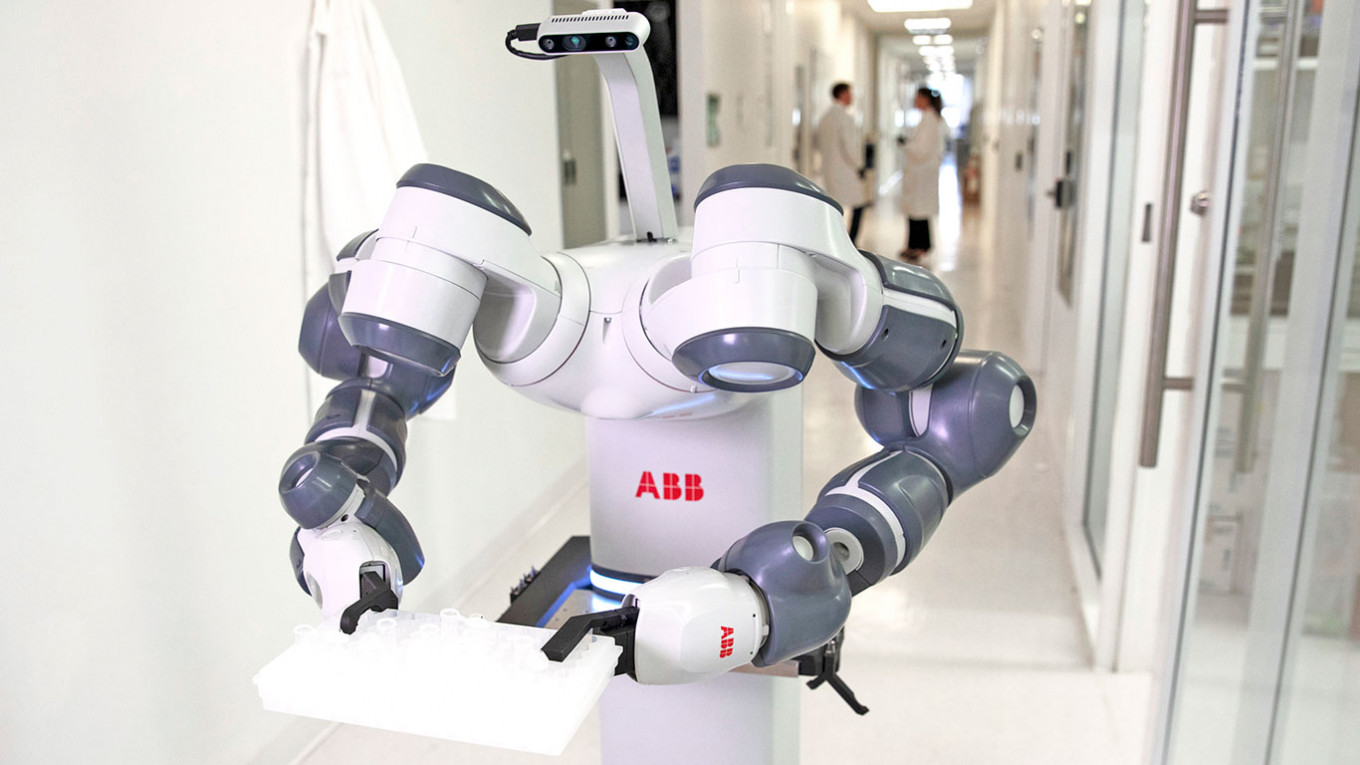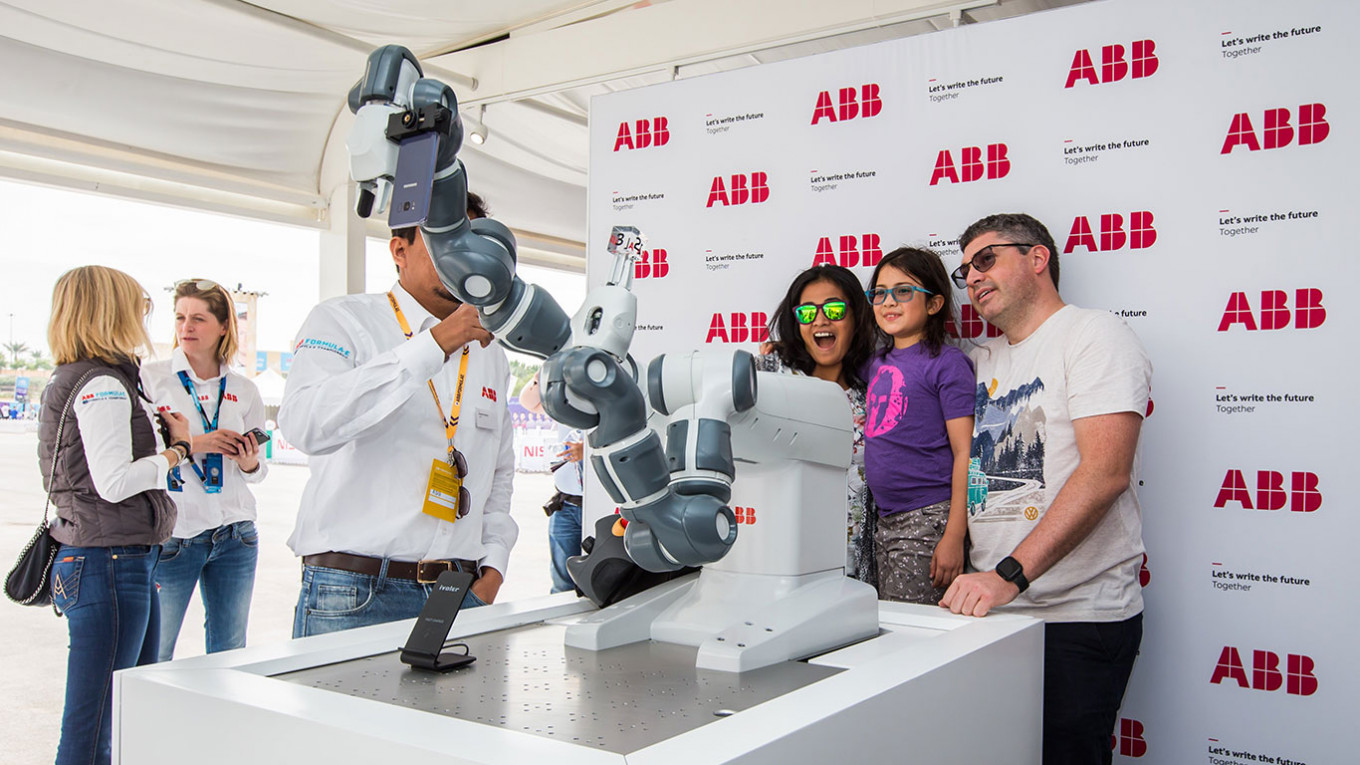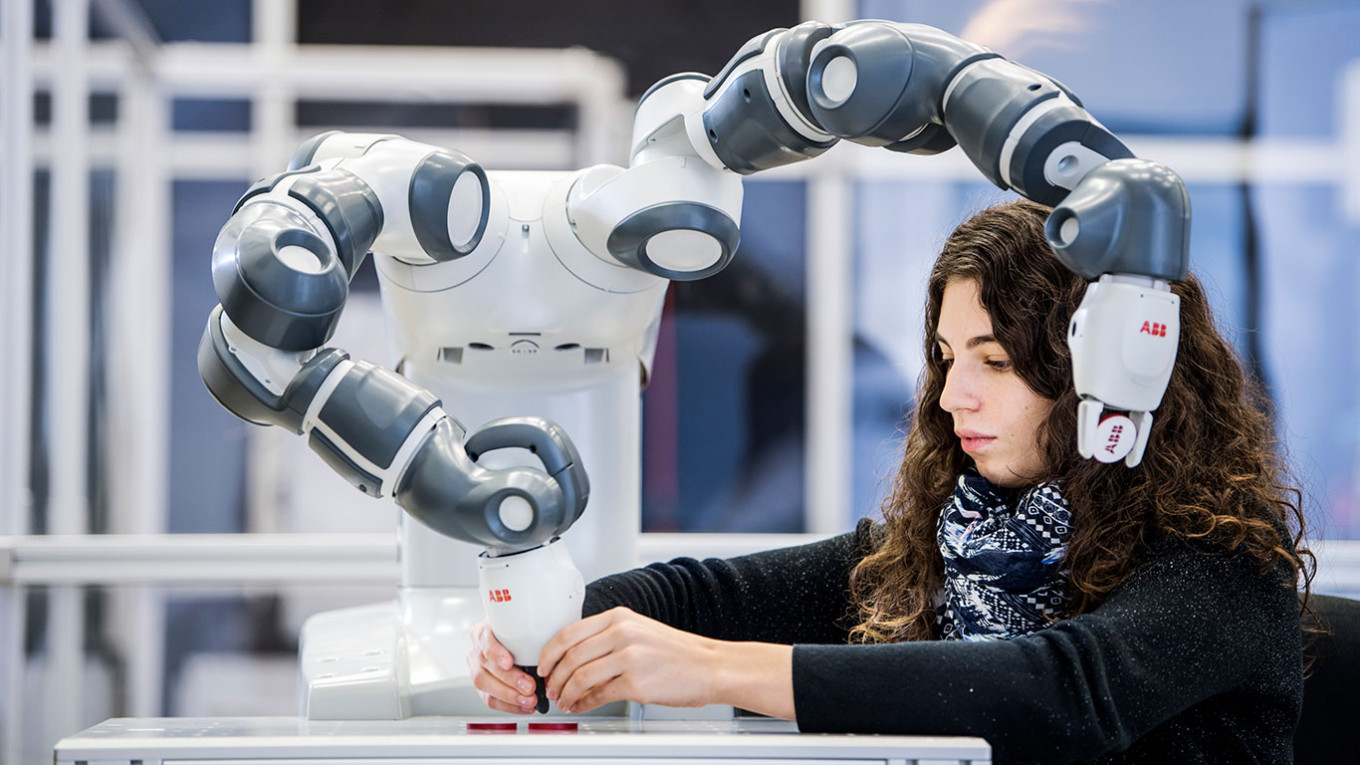World Robotics Day was celebrated in Moscow with a week-long event, hosted by one of the leading global technology companies, the multinational Swiss corporation, ABB. The event was created in collaboration with Moscow City’s Panorama 360, which at 327 meters (more than 1,000 feet) above ground is the highest viewing platform in Europe — the perfect location to showcase technological advancements.
Over the course of the week-long event, the public could attend masterclasses in robotics and spend time with two robots who go by the name YuMi (from the words “you” and “me”). Programmed for entertainment, one hands out ice-cream (from the world’s highest ice cream factory) to excited children and adults alike, while the other uses its arms to assemble a word of your choosing using children’s building blocks with letters painted on the top of each. After inputting the word into a tablet device, a camera on YuMi’s hand allows it to pick up individual blocks using a suction pad. Then, by transferring each block into its other hand, YuMi lined up the blocks in the programmed order.

Though these robots are purely for entertainment, other YuMis are already used in technology. For example, in Denmark they help to produce insulin using syringes which are quality checked by YuMi to reduce the risk of human error. Weighing only 38kg, they can be moved easily from station to station. ABB’s more industrial, heavy-duty robots require more careful handling, as shown through models at the event, including the giant robots that help to lift 800kg pallets in Chelyabinsk, or the lightning robots that move at an extremely fast speed.
Unsurprisingly, the younger generation, who now often learn basic coding from a young age, took to programming YuMi with ease. Igor Kornilov, the head of the technical department at ABB Moscow, told The Moscow Times that from what he has observed at the robotics masterclasses, “the children learned in 15-30 minutes what professionals in ABB’s training center learn in 2 days! The young generation is really quick!” He also said that people’s fears of robots replacing human workers are unfounded. Even though they can work 24 hours a day and are never sick, he said he believes that robots will always need humans in order to perform at optimum efficiency.

In comparison to many parts of the world, Russia’s robot count is small. In Singapore, for example, there are more than 900 robots per 10,000 humans, whereas in Russia it is only 6. However, the use and implementation of robotics is gaining traction. Although Russia’s robotics production is still in its elementary stages, with a new generation of young programmers the expansion of robotics into more spheres of work seems inevitable.
A Message from The Moscow Times:
Dear readers,
We are facing unprecedented challenges. Russia's Prosecutor General's Office has designated The Moscow Times as an "undesirable" organization, criminalizing our work and putting our staff at risk of prosecution. This follows our earlier unjust labeling as a "foreign agent."
These actions are direct attempts to silence independent journalism in Russia. The authorities claim our work "discredits the decisions of the Russian leadership." We see things differently: we strive to provide accurate, unbiased reporting on Russia.
We, the journalists of The Moscow Times, refuse to be silenced. But to continue our work, we need your help.
Your support, no matter how small, makes a world of difference. If you can, please support us monthly starting from just $2. It's quick to set up, and every contribution makes a significant impact.
By supporting The Moscow Times, you're defending open, independent journalism in the face of repression. Thank you for standing with us.
Remind me later.






